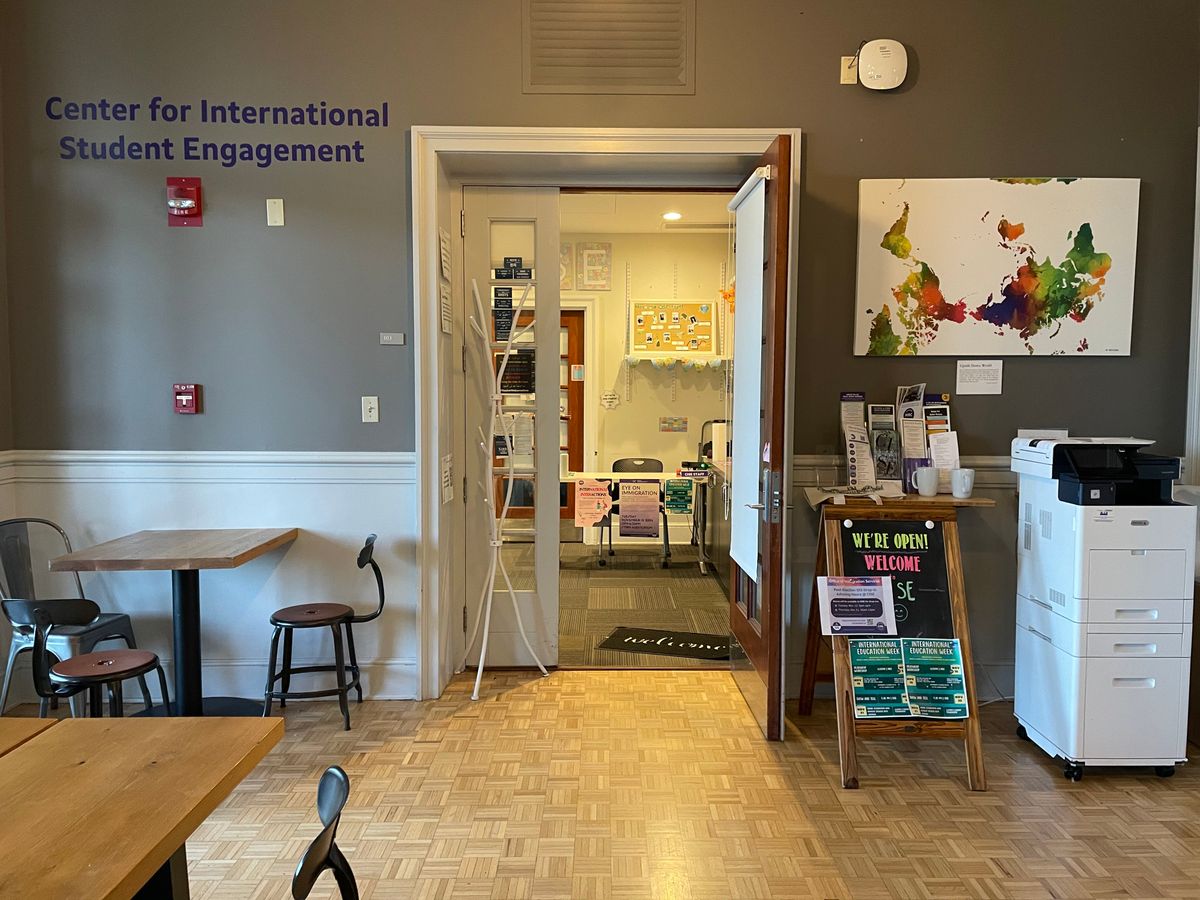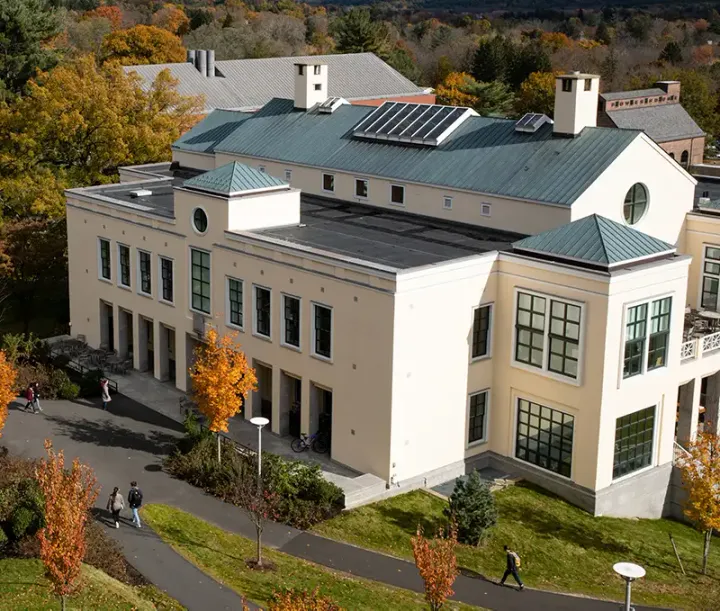Winter Break Housing Policy Revised Over International Student Complaints
The college reversed a recent winter break housing policy change that would have left many international students scrambling for a place to stay over the break.

When Atheek Azmi ’25, an international student from Sri Lanka, received an email stating that students would not have access to dorms from Dec. 21 to Jan. 2 unless granted special approval, he faced a difficult choice: Spend an extra $3,000 to move his flight home, or spend $400 for two days in a hotel.
Azmi was one of dozens of students affected by the announcement. Many expected a continuation of previous years’ policies, which allowed international students experiencing travel difficulties to stay on campus. Shortly after the email, the International Students Association (ISA) sent a group email to Dean of Students Angie Tissi-Gassoway after gathering students’ concerns. On Nov. 14, Dean Gendron, senior associate dean of students, responded with an email that outlined a reversal to the previous policy out of “visa and travel uncertainties.” Students only need to fill out a registration form to be able to stay.
“My situation is basically resolved if they stick to the new email,” Azmi said.
Before sending the group email, ISA’s executive board gathered individual students’ concerns, including issues ranging from an inability to move their flights to not knowing where to stay, said ISA president Shreya Mathew ’25.
“For most of the international students who are on financial aid, it would have been really bad,” Mathew said. “Usually, it’s very clearly known that booking tickets during December is the most expensive, and even financial aid does not cover that round of tickets for international students.”
Director of Housing & Operations Marie Lalor said that the policies in recent years, which allowed international students with travel restrictions to stay on campus during December Closure, were a specific response to Covid. The new policies outlined in the Nov. 8 email were similar to those preceding Covid. However, Lalor also acknowledged the importance of students’ voices in the reversal.
“The Community Living Policy was not ratified until mid-September, and in recognition of that later date, combined with international students' need to plan further in advance than our domestic students, we created a direct path for this group of students to register their needs this year,” Lalor said. “We value our students’ outreach, and their concerns do factor into our decision-making.”
Lalor also advised students to consult move-out dates in the Community Living Calendar before booking flights. Most students, however, said that they had booked their flights home before arriving on campus.
Some students had already made changes to their winter break plans before Housing & Operations reversed the decision. A student who wishes to remain anonymous booked a $3,000, nonrefundable flight to China to comply with the new policy, only to find out three hours later that she would be allowed to stay on campus as she initially planned.
“I literally pulled up all my funds from my summer savings because my parents were like, ‘We can’t really give you $3,000 right now out of pocket,’” they said. “I’m going to ask [the school] to reimburse me. Why do they try to change it this year of all years, without even considering the impacts it will have on people, and telling them in November?”
Nevertheless, many international students remain appreciative of the administration’s quick response. Housing & Operations responded to Mathew’s email on behalf of the ISA within 24 hours, and corrected the situation within the next 24 hours.
“I’m pretty happy about the way [the] administration responded,” Mathew said. “Though we did not get to meet them in person, sending our concerns over an email made them respond, which is a great thing at this point.”
ISA is planning to turn this temporary solution into a permanent policy. Peishan Huang ’28 and Audrey Xia ’28, who were in charge of compiling students’ concerns for ISA, are petitioning to make sure that the decision will not be overturned again. Mathew also mentioned that ISA will be having an open meeting with Tissi-Gassoway in December to discuss the possibility of continuing this solution.
“We should try to put it [as a] policy so it can’t get changed later on,” Huang said. “Because [the solution] was a Covid thing, now they can say, ‘It’s not Covid anymore, let’s remove it.’”
Many international students are also hoping for more transparent communication and a better understanding of traveling and financial difficulties in the future.
“I realized that I am privileged in not having to face [more dire situations], but I feel that shows that all of us have our different narratives,” Azmi said. “There’s no need to put a blanket policy and then deal with each [person] individually if they had gone through this process of communication and discourse [earlier].”
Last updated on 1/28/24 to change a source to anonymous.





Comments ()